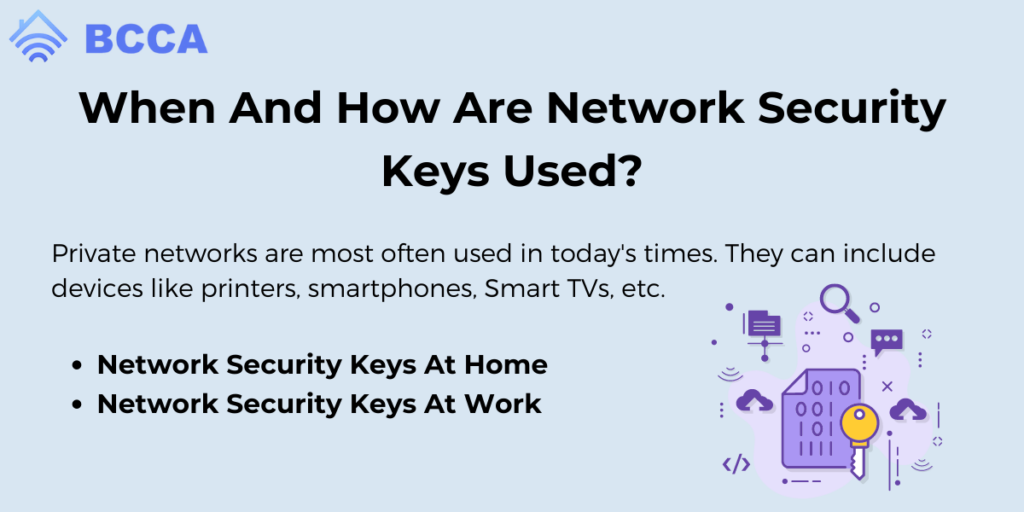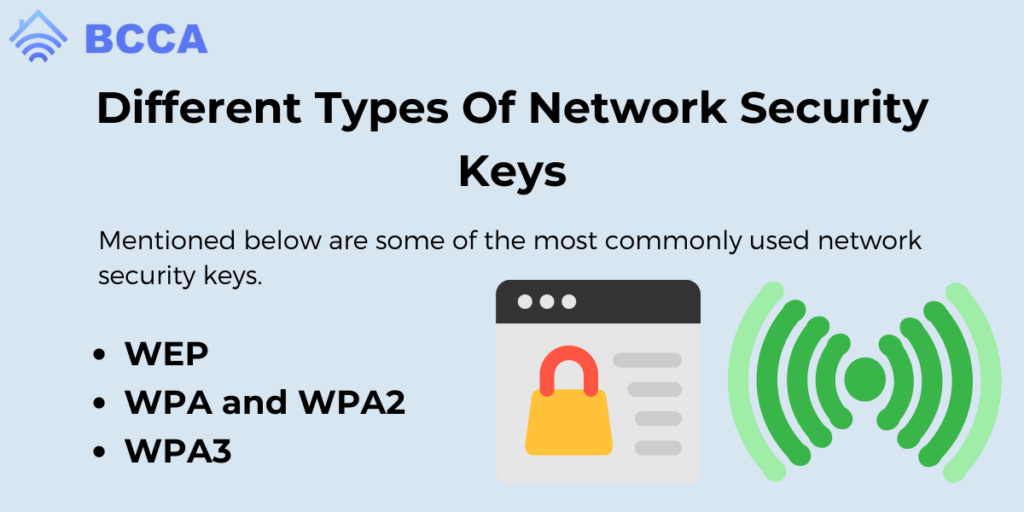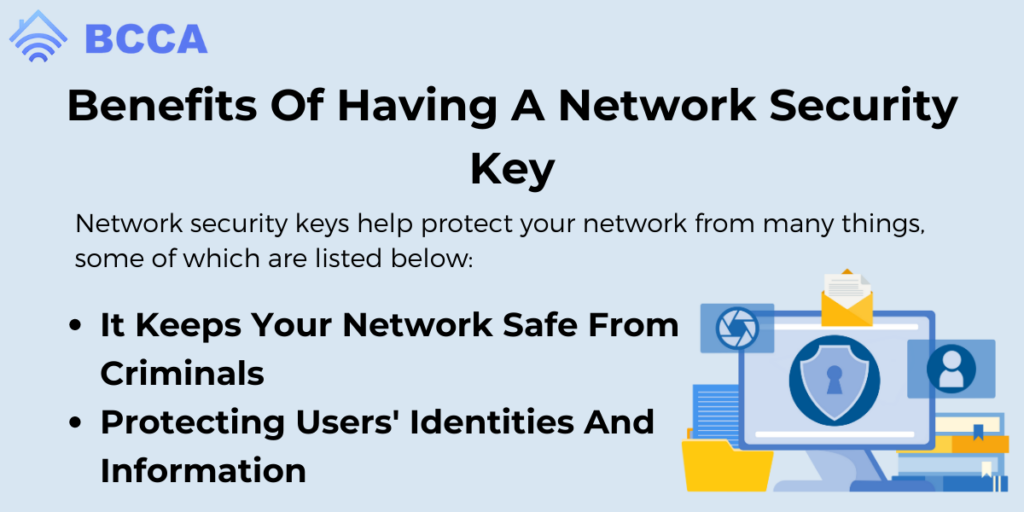In today’s tech-savvy world, cybercrime has become more commonplace than one might think. One reason for this is the increased reliance on technology for literally everything we do in our day-to-day lives.
No matter what network you connect to, there is always a possibility of your devices being prone to hackers’ attacks. This could even be true for your home network or your company’s network. That is why, keeping your network up to date and protected is very important.
Even though attacks are becoming increasingly common, there are some things that you and other individuals can do to keep their network secure. First, learning the difference between passwords and network security keys is important. Though they’re often used as synonyms of each other, they are anything but.
In this article, we will delve into the concept of a network security key and shed light on its role in protecting your Wi-Fi network from potential threats and unauthorized access.
Table of Contents
- So What Exactly is A Network Security Key?
- Purpose of A Network Security Key
- When And How Are Network Security Keys Used?
- So What is The Difference Between A Network Security Key And A Password?
- Different Types of Network Security Keys
- Why is Network Security so Important?
- Benefits of Having A Network Security Key
- Conclusion
So What Exactly is A Network Security Key?
In order to enter a Local Area Network (LAN), you must have a network security key, which is essentially a key or password. A network security key basically also helps create a secure, encrypted network connection between the client and the network that’s serving, or a wireless device, like a router, for example.
This encryption prevents people without authorization from accessing the data and the devices.
A network security key is pretty common in houses nowadays, because that’s how we access our own wifi networks, after all! Every network that is secured will have to be accessed with the help of a network security key, however, the levels of security will vary from network to network.
Purpose of A Network Security Key
Now that we know what a network security key is, what purpose does it serve?
It basically protects your network from prying eyes. It provides authorization for any devices looking to connect to your network.
If you plan on using a Wi-Fi network, a network security key will instill confidence in you regarding safety and reliability. It tells you that your information is safe.
When And How Are Network Security Keys Used?

Private networks are most often used in today’s times. They can include devices like printers, smartphones, Smart TVs, etc. These devices connect to the router which in turn connects to the modem, which makes providing an internet connection possible.
1. Network Security Keys At Home
You need to be aware of the network security key in order to connect to Wi-Fi and use the internet.
To do this, navigate to settings, then to Wi-Fi, and enter your network security key. This will ensure you get Wi-Fi access. Anyone else who is looking to connect to the network will also have to enter the network security key into their respective devices.
2. Network Security Keys at Work
Many small businesses provide Wi-Fi in the same way as private networks. However, larger establishments often provide free Wi-Fi connections. They usually have 2 Wi-Fi routers for this purpose. One router is used which exclusively deals with the Wi-Fi requirements of the customers, and the other deals with the requirements of the business itself.
Customers can connect to the Wi-Fi network by clicking on the network name (SSID) and then entering the Wi-Fi password (security key).
So What is The Difference Between A Network Security Key And A Password?
A network security key is so much more than a password, even though these 2 concepts might be incredibly similar. Network security keys are associated with hardware, like routers and modems, for example. Network security keys vary from router to router, depending on the manufacturer.
It protects your internet experience by encrypting it. It keeps your sensitive data safe from hackers looking to misuse it.
A password, on the other hand, is a passphrase or a series of characters used to confirm a user’s identity and authorize access to a particular account or device. For example, passwords are frequently used to access online accounts, log into computers, and unlock devices.
A network security key and a password are primarily distinguished by their separate purposes. The Wi-Fi network itself is secured using a network security key, prohibiting unauthorized users from connecting to it. A password, on the other hand, is used to confirm an individual’s identity and grant access to a particular account or device.
It goes without saying, but the network administrator has full control over every single one of the network’s settings, including authorization. Ideally, they should select the highest level of security available to ensure a smooth online experience. The level of security and the network security key used helps determine how safe the network is from hackers.
Different Types of Network Security Keys

Mentioned below are some of the most commonly used network security keys.
1. WEP
WEP keys are the oldest network security keys, and they are being used less and less for this very reason. It has become outdated, which makes it incredibly vulnerable to attacks.
2. WPA and WPA2
These 2 keys are upgrades as compared to their more outdated predecessor. A network security key is required to gain access to the network. These 2 keys encrypt every single data exchange that takes place after validation.
However, WPA2 is a little more secure than WPA because it uses an advanced encryption standard (AES) based encryption mode. WPA and WPA2 are used by both, small work networks and private home networks.
3. WPA3
This is the most recent development and offers the most protection. However, one downside is that it is not readily available.
You can gain more information about which method your router uses by looking at the manufacturer’s sticker on your router. See this article on Lifewire for more information on how you can find keys on your router, or other devices such as Android devices or Windows 10.
Why is Network Security so Important?
It safeguards the sensitive data of companies and users. From the perspective of a company, this sensitive data could include crucial financial data. Therefore, network security is important. Big businesses also store their client’s data, which is also very important to protect from unwanted attacks.
Network security can also help prevent ransomware attacks. These attacks deny users their data, and the only way to regain access to their data is to pay the hacker. Network security can also help enhance performance and ensure smooth internet experiences, especially for start-ups and companies.
Cybersecurity is quickly becoming a career of interest for many. Companies are hiring cyber security specialists by offering amazing remunerations and offers.
Benefits of Having A Network Security Key

Network security keys help protect your network from many things, some of which are listed below:
1. It Keeps Your Network Safe From Criminals
It prevents your network from being accessed by cybercriminals. Network security keys have evolved because of the increasing instances of cybercrime.
The most secure key you can use is WPA3, although WPA2 is used more commonly. Even though they are not completely safe from attacks, they are the next best thing to use.
2. Protecting Users’ Identities And Information
Cybercriminals compromise a network and therefore gain access to the sensitive data stored within it. Therefore, having a network security key is very important to prevent them from gaining access to sensitive data such as addresses, social security numbers, financial documents, and phone numbers.
Conclusion
It is paramount to realize how critical it can be to have an excellent wireless networking system by creating unique passwords. In modern times with advanced technology comes more extensive risks, which include cybersecurity threats such as identity theft or malware infections; therefore, ensuring that all sensitive information falls into safe hands becomes more essential today than before.
Setting up powerful encryptions alongside distinct passwords will not guarantee complete safety but will minimize any risk posed by malicious actors wanting unauthorized access to networks that store private information like user IDs, and credit card details among others.
Your network can be safeguarded from potential threats such as hacking attempts, data breaches, or unwarranted usage when secured with a strong network security key. Acting as an essential barrier against these dangers. This measure ensures authorized access only for enhancing safety measures of your sensitive information.
Ensuring the safety and protection of your Wi-Fi network is incredibly important when considering the multitude of threats it may face while online. Simply put: if you use an easily guessable or weak security key for access to this network you open yourself up to risks.
These risks can be avoided by creating stronger passwords employing a diverse assortment of letters, numbers, and other special characters. Consider implementing additional protective measures like periodic updates on passwords along with encryption protocols in place on top of these precautionary measures.
Chris loves technology, specifically smart home technology! With both hands-on and executive leadership experience in his corporate career, Chris stays abreast of emerging technology and solutions and immerses himself in BCCA when not in the office.
